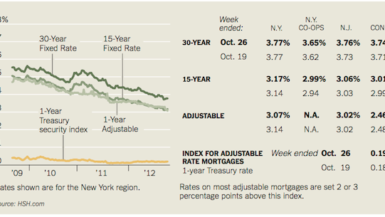In the vast world of construction projects, one key individual plays a crucial role in determining the success of any endeavor—the construction estimator. Their expertise and meticulous analysis of project costs lay the foundation for efficient planning and execution. In this article, we will explore the role of a construction estimator, the skills required, the tools they use, and the challenges they face.
1. Introduction
Construction estimating is a specialized field that involves assessing the costs and resources required for a construction project. At its core, a construction estimator is responsible for calculating the overall expenses, analyzing the feasibility of the project, and determining a competitive bid. They act as financial advisors, providing critical insights to project managers and contractors.
In the competitive construction industry, accurate and efficient estimating is vital. Estimators must possess a blend of technical knowledge, analytical skills, and excellent communication abilities.
2. Skills and Qualifications of a Construction Estimator
Becoming a construction estimator requires a specific skill set and educational background. While formal education in construction management, civil engineering, or a related field is valuable, hands-on experience is equally crucial. Estimators need to understand construction plans, blueprints, and specifications to create comprehensive estimates.
Moreover, proficiency in using specialized software designed for construction estimating is essential. Estimators must be adept at navigating through databases of costs, labor rates, and material prices to generate accurate estimates.
3. The Role of a Construction Estimator
The primary role of a construction estimator is to analyze all aspects of a construction project and provide detailed cost estimates. They work in collaboration with project managers, architects, and subcontractors to understand the scope of work and the materials required. Estimators then break down the project into various tasks and evaluate the costs associated with each stage.
Additionally, construction estimators assist in the bidding process, helping contractors submit competitive and realistic bids to potential clients. Their input is invaluable in winning projects and securing contracts.
4. Estimating Software and Tools
With the advent of technology, construction estimators now rely on sophisticated software and tools to streamline their work. These software solutions help in organizing data, generating reports, and creating accurate estimates. Some of the popular software used in construction estimating include PlanSwift, Clear Estimates, and ProEst.
The integration of Building Information Modeling (BIM) technology has further enhanced estimating accuracy, allowing estimators to visualize the project and make more informed decisions.
5. Types of Construction Estimates
Construction estimating involves different types of estimates that serve various purposes throughout a project’s lifecycle:
- Preliminary Estimates: These initial assessments provide a rough idea of the project’s cost during the planning stage.
- Detailed Estimates: As the project progresses, detailed estimates take into account specific quantities of materials, labor hours, and equipment needed.
- Bid Estimates: When competing for a project, estimators create bid estimates that represent a competitive price to secure the contract.
- Change Order Estimates: In case of modifications or changes during the project, estimators provide change order estimates to reflect the cost impact.
6. Factors Affecting Construction Estimates
Numerous factors influence construction estimates, making the estimator’s job complex and challenging. Some of the key factors include:
- Material Costs and Availability: Fluctuations in material prices and their availability affect estimates significantly.
- Labor Considerations: Labor rates, productivity levels, and workforce availability impact project costs.
- Project Location and Site Conditions: Geographic location and site conditions can pose unique challenges and costs.
- Market Trends and Economic Factors: Changes in the market and the economy influence material costs and overall project expenses.
7. Best Practices in Construction Estimating
To ensure accurate and reliable estimates, construction estimators follow best practices such as:
- Breaking Down the Project into Tasks: Dividing the project into smaller tasks simplifies estimation and reduces the margin of error.
- Using Historical Data and Benchmarks: Past project data and industry benchmarks provide valuable reference points for estimation.
- Keeping Up-to-date with Industry Changes: Estimators stay informed about the latest construction methods and materials to produce up-to-date estimates.
8. Challenges Faced by Construction Estimators
Estimating is a challenging task that requires dealing with uncertainties and meeting tight deadlines. Estimators must adapt to changing project requirements and fluctuating market conditions. They also face the pressure of producing accurate estimates that align with the project’s financial constraints.
9. Importance of Accuracy in Construction Estimating
The significance of accurate estimates cannot be overstated. Inaccurate estimations can lead to budget overruns, delays, and disputes. By providing precise estimates, construction estimators contribute to project success and client satisfaction.
Estimators employ various techniques and methodologies to enhance accuracy, such as using historical cost data, conducting thorough research, and consulting industry experts.
10. Communication Skills for Construction Estimators
Effective communication is a fundamental aspect of a construction estimator’s role. They must collaborate with project managers, subcontractors, and suppliers to gather essential information and ensure that everyone is on the same page.
During the bidding process, estimators communicate the rationale behind their estimates to potential clients, making a compelling case for their bid.
11. The Future of Construction Estimating
The future of construction estimating lies in continued technological advancements. Artificial intelligence, machine learning, and data analytics are already influencing the construction industry, and estimators will increasingly rely on such tools to generate accurate and efficient estimates.
Moreover, Building Information Modeling (BIM) will play a more significant role in estimating as it offers real-time data and better visualization of projects.
12. Conclusion
In conclusion, construction estimators play a vital role in the construction industry. Their expertise and skills contribute to effective project planning and execution. With the right education, experience, and technological know-how, construction estimators continue to shape the future of construction projects.
By adopting best practices, leveraging cutting-edge technology, and maintaining excellent communication skills, construction estimators will continue to be at the forefront of project success.





Leave a reply